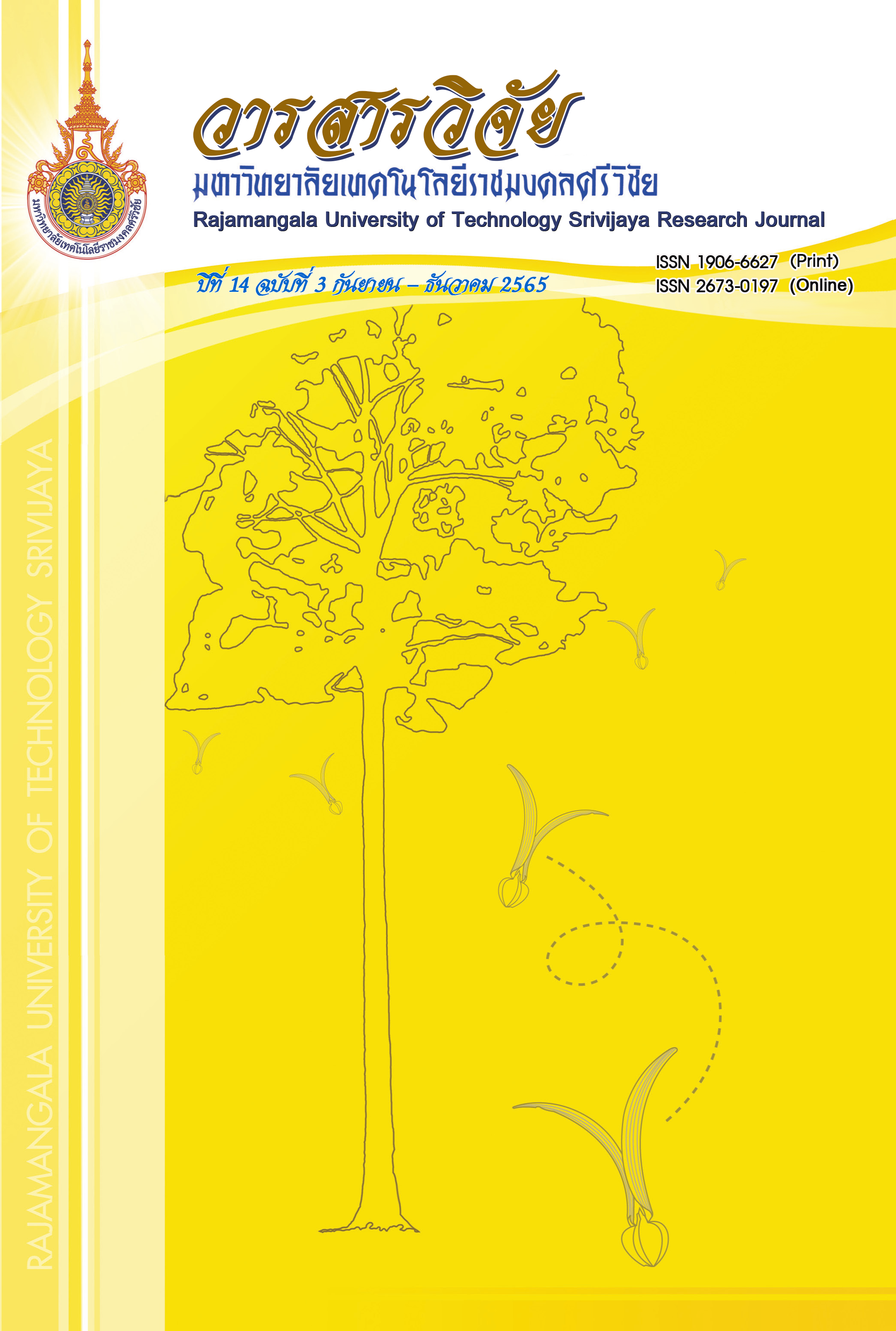Sentiment Analysis Techniques of Online Product Reviews
Keywords:
Sentiment Analysis, Text Mining, machine learning-based approach, online shopping, Thai word segmentation, opinion miningAbstract
This research proposes a model for Sentiment analysis of emotional levels of users’ opinions towards online products and services. The techniques used in this research are Machine Learning, Text Mining integrated with 3 types of Word Segmentation and Bag of Words. Four sentiment analysis methods: K-nearest neighbors Classifier, Random Forest Classifier, Logistic Regression and Support Vector Machines (SVM) were used for analysis. The model was developed through 5 steps including 1) Data Collection and Preparation Phase, 2) Text Processing Phase, 3) Training & Streaming Phase, 4) Classification Phase, and 5) Model Evaluation Phase. Consumers’ opinions were gathered from social blogs related to online products and services. 252 articles with 1,412 comments were collected making up 83,670 words in the dataset. The model can help consumers make a decision for purchasing of goods and services, and help entrepreneurs gain the information to improve products and services in the future. This proposed method classified opinions into 3 scales: positive, neutral and negative opinions. Each method offered different levels of forecast ability: the K-Nearest Neighbors revealed the accuracy index at 56.2%, Random Forest Classifier at 71.6%, Logistic Regression at 77.2% and Support Vector Machines (SVM) at 79%. However, the combination of SVM and Longest Word Segmentation performed better compared to other techniques and is more appropriate as part of sentimental analysis model for Thai reviews and comments.
References
Anurag, P.J. and Vijauy, D.K. 2015. Sentiments Analysis of Twitter Data Using Data Mining, pp. 807-810. In 2015 International conference on Information Processing (ICIP) Vishwakarma Institute of Technology. Pune, India.
Chormai, P., Prasertsom, P. and Rutherford, A. 2019. AttaCut: A Fast and Accurate Neural Thai Word Segmenter. Available Source: https://pythainlp.github.io/attacut/, June 20, 2020.
Chumwatana, T. 2015. Using Sentiment Analysis Technique for Analyzing Thai Customer Satisfaction from Social media, pp. 659-664. In Proceedings of the 5th International Conference on Computing and Informatics (ICOCI) 2015. Istanbul, Turkey.
Electronic Transections Development Agency (ETDA). 2019. mSMEs Scoring Report. Available Source: https://www.etda.or.th/publishing-detail/msmes-scoring-report.html, September 26, 2019. (in Thai)
Fan, X., Li, X., Du, F., Li, X. and Wei, M. 2016. Apply Word Vectors for Sentiment Analysis of APP Reviews, pp. 1062-1066. In The 2016 3rd International Conference on Systems and Information (ICSAI 2016) IEEE. Shanghai, China.
Haseena, R.P. and Ahmad, T. 2014. Sentiment Analysis Techniques - A Comparative Study. IJCEM International Journal of Computational Engineering & Management 17(4): 25-29.
Limkonchotiwat, P. 2018. How important is the Evaluate Model?: Machine Learning 101. Available Source: https://medium.com/mm
p-li/evaluate-model-precision-recall-f1-score-machine-learning-101-89dbbada0c96, January 20, 2020. (in Thai)
Lorattanachaiyong, I. 2017. Generating Thai Sentiment Lexicon from Online Reviews. A Thesis for the Degree of Master Thesis of Arts, Chulalongkorn University. (in Thai)
Netisopakul, N. and Thong-iad, K. 2018. Thai Sentiment Resource Using Thai WordNet, pp. 329-340. In Conference on Complex, Intelligent, and Software Intensive Systems. Springer, Cham.
Promla, P. and Sanrach, C. 2020. The Comparison of Efficiency on The Analysis of Satisfaction on Teaching Performance using Sentiment Analysis by Ensemble Technique. KU Research Journal (Graduate Studies) 4(20): 104-149. (in Thai)
PyThaiNLP. 2018. PyThaiNLP Tutorials. Available Source: http://www.thainlp.org/pythainlp/tutorials/, June 20, 2020
Sepandar, D.K. and Jonathan, H. 2011. We feel fine and searching the emotional web, pp. 117-126. In Proceedings of the fourth ACM international conference on Web search and data mining (WSDM ’11). Association for Computing Machinery, New York, USA.
Sornjapo, N. 2019. Thai Text Automatic Clustering Model Using Machine Learning by Unsupervised Learning with Natural Language Processing. Sripatum Chonburi Jounal 14(4): 95-106. (in Thai)
Trupthi, M., Pabboju, S. and Narasimha, G. 2017. Sentiment Analysis on Twitter Using Streaming API, pp. 915-919. In 2017 IEEE 7th International Advance Computing Conference (IACC). Hyderabad, India.
Downloads
Published
How to Cite
Issue
Section
License
Copyright (c) 2022 Rajamangala University of Technology Srivijaya Research Journal

This work is licensed under a Creative Commons Attribution-NonCommercial-NoDerivatives 4.0 International License.
The content and information in the article published in Journal of Rajamangala University of Technology Srivijaya It is the opinion and responsibility of the author of the article. The editorial journals do not need to agree. Or share any responsibility.







